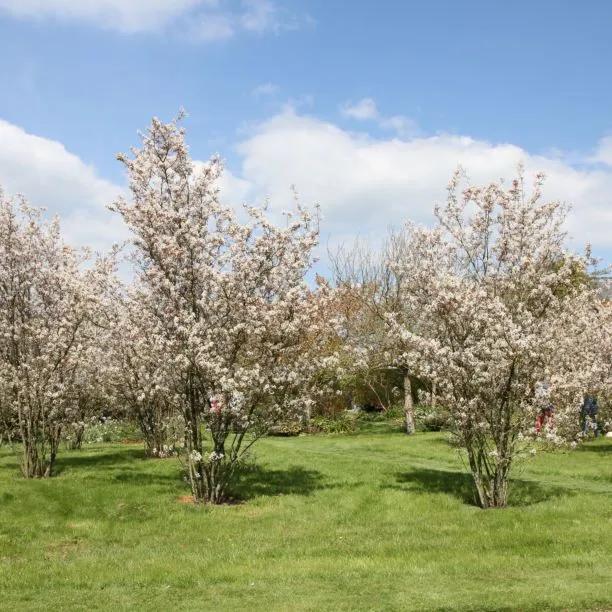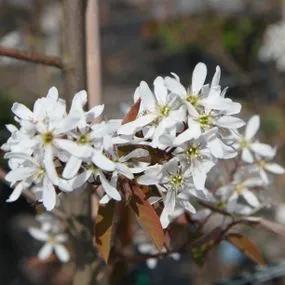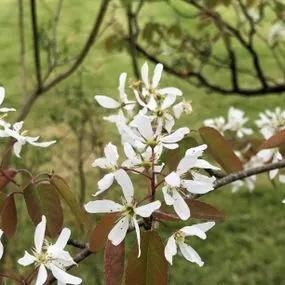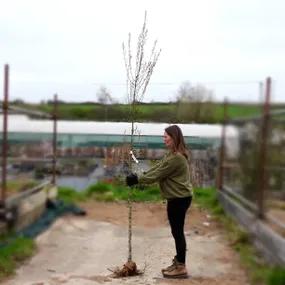Amelanchier Serviceberry Large Trees
Honest Delivery Prices- Small, upright & bushy.
- Spring flowers & autumn colour.
- Edible fruit.
- Not suitable for chalk.
- Max. Height 8 metres.
- Bareroot Delivery: Nov-Mar
Recommended extras
Description
Amelanchier canadensis: Juneberry, Standard Size Trees
Amelanchier canadensis is a bushy little tree or large shrub that provides interest all year round, with masses of white flowers in spring followed by red, edible fruit in summer (get them before the birds do) and brilliant orange-red autumn foliage. It can also be grown as a large shrub with an upright canopy that will fit into most small gardens. It can reach a height of about 6-8 metres.
We also grow Amelanchier Robin Hill, and sapling Amelanchier lamarckii.
Browse all of our ornamental & garden trees, or our other trees for small gardens.
Features:
- Profuse white flowers in April
- Edible berries
- Splendid red & orange Autumn colour
- To 8 metres
Growing Amelanchier canadensis
An undemanding tree that prefers decent drainage and a neutral to mildly acidic soil pH. It will grow in damp, but not waterlogged, locations beside water with good sun.
The spreading, shallow fibrous roots are great for holding loose soil in place on a mound or bank, or thin topsoils on rocky locations. It is hardy and wind resistant, but not suitable for the coast or polluted urban sites. It benefits from a mulch in late spring / early summer, especially in dry locations.
It has a suckering habit that will tend to turn it into a large shrub over time if they are not removed.
Planting Instructions
Did You Know?
From North America, it has a range of common names, including serviceberry, juneberry, snowy mespilus, chuckle-berry, currant-tree, shad-blow, shadbush, grape pear, and sugarplum. The sweetness of the fruit is variable from tree to tree and year to year: if it is bitter, cook it and it will taste great.
The wood is hard and durable, so it was commonly used to make handles for weapons and tools.
Standard trees are measured by their girth in centimetres 1 metre above ground level: their trunk's waist measurement. Unlike sapling trees and hedge plants, standards aren't measured by their height, which will vary quite a bit both between and within species.
So, a 6/8cm standard tree has a trunk with a circumference of 6-8cm and an 8/10 standard has a trunk 8-10cm around. This measurement makes no difference to the tree's final height.
On average, standard trees are 2-3.5 metres tall when they arrive, but we cannot tell you precisely how tall your trees will be before we deliver them.






